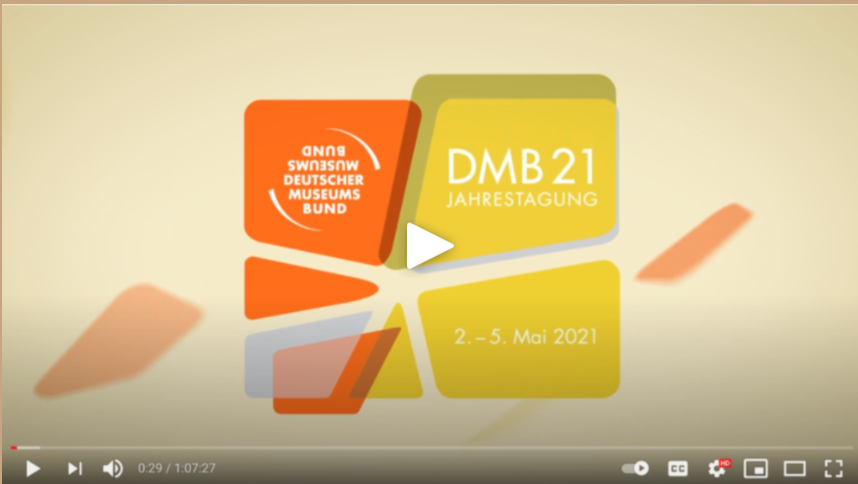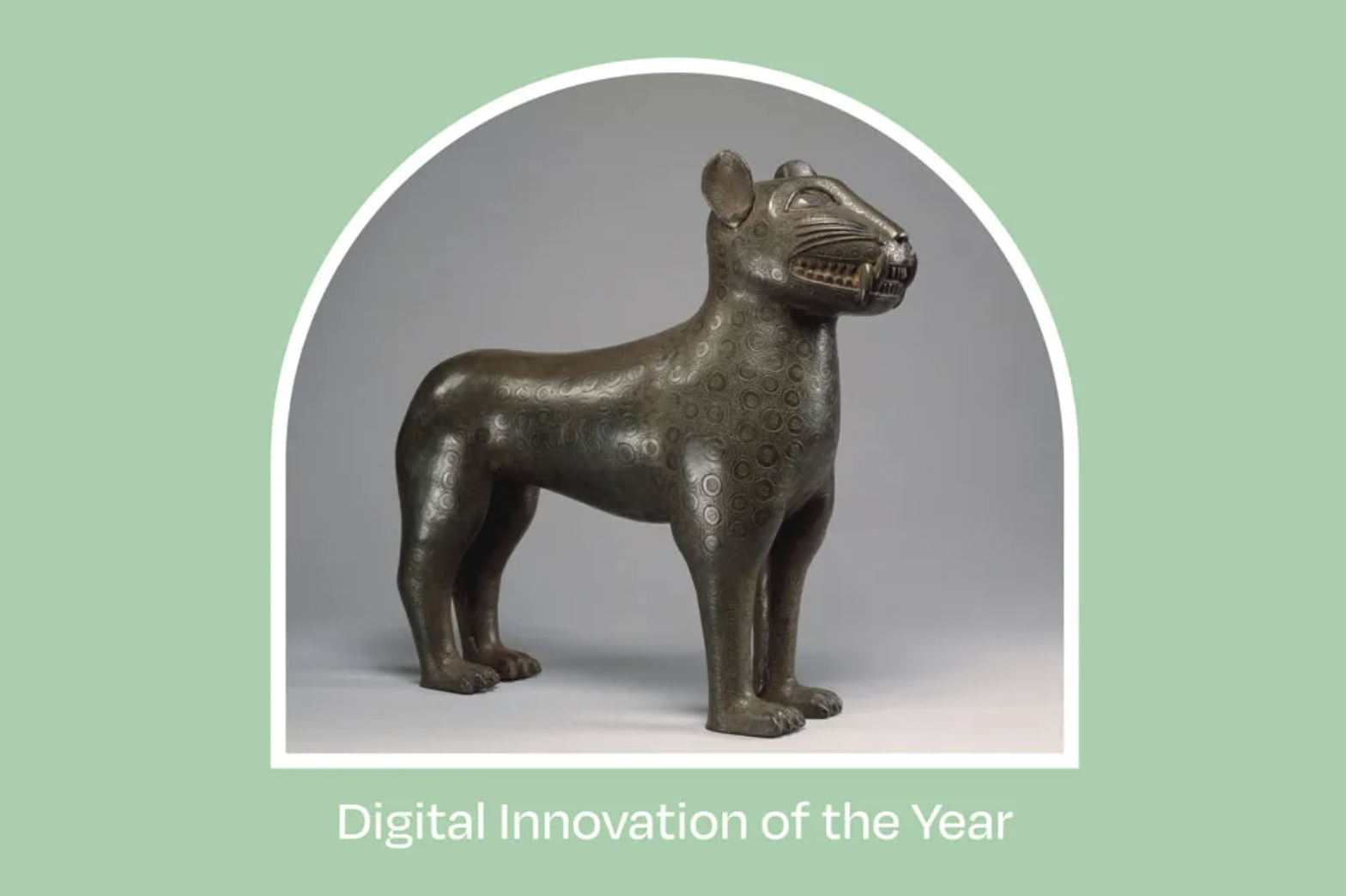Anne Luther and Eiloghosa Obobaifo In conversation with Alex Morrison, COGAPP IT and ICRA Board Member for a Keynote Panel at the 6th Annual Conference “New Thinking About the Catalogue Raisonné” Mishcon de Reya, Africa House, London January 9th, 2025
We introduced Digital Benin at this conference, addressing critical questions about representation, the impact of digital tools, and the insights offered by collaborative approaches, such as the Benin Digital Project. We also examined the broader implications of digital initiatives and their potential to reshape the field.
Virtual Gathering organized by the Goethe Institut London On Digital Access and Ownership
Lives of Objects: Online Gathering #3 illuminates the contrast between African-led and European approaches to digital accessibility and transparency, giving attention to important initiatives such as the Ghana Restitution Inventory Project and Digital Benin. In this discussion, Karen Ijumba, senior researcher of Open Restitution Africa, is joined by Anne Luther, a specialist for digital heritage and a digital humanities scholar and principal investigator for Digital Benin, by Eiloghosa Oghogho Obobaifo, Nigerian anthropologist and researcher, and member of the Digital Benin Project, and by Temi Odumosu, an art historian, curator and assistant professor at the University of Washington Information School in Seattle (USA).
Instagram Live Talk on Digital Restitution with Medhavi Ghandi in the #Heritage_Digitised Program at the Goethe Institut
For restitution, it is important that institutions have a sound approach to digital collections inventories and records of provenance. This allows institutions to identify collections that were acquired as a consequence of unequal power relationships and leads to the ethical question on the right of institutions to facilitate digital access, ownership and authorship. Institutions with access to digital infrastructure and technology, have to ask for permission to digitise and store digital assets during and after restitution processes. Not doing so re-establishes the colonial power structure by prohibiting & restricting the original community’s agency over their own cultural heritage.
Digital Benin presented at ICOM-IMREC expert seminar at Shanghai University on museums, decolonisation and restitution
Issues of emerging significance for the world’s museums are the core of ICOM-IMREC’s work. Through an expert seminar of academics and museum practitioners from across the globe, ICOM-IMREC will examine the challenges, opportunities, implications and impacts of decolonising museums and returning objects. The seminar takes place in Shanghai over two full days from 9:00 am-5:00 pm CST. On March 20th, keynote papers, sessions and panels will explore how decolonising museums impacts institutional structure, intellectual frameworks, power-sharing with communities and professional practice. On March 21st the experts examine the impact of restitution on communities, the role of legal systems and policy frameworks, the part that digital is playing and a critical look at some successful repatriation projects.
Digital Benin Launch, Edo Summit Benin City, Nigeria
Digital Benin launched on November 18, 2022 at the Edo Summit in Benin City. The platform brings together all objects and rich documentation material from collections worldwide to provide a long-awaited overview of the artefacts from the Kingdom of Benin looted in the late nineteenth century. The historic objects were originally used as royal representational arts to depict historical events, to communicate, to worship and perform rituals. The digital platform enables new knowledge production by connecting digital documentation of the translocated objects with oral histories, object research, historical context, a foundational Edo language catalogue, provenance names, a map of the Benin Kingdom and museum collections worldwide. Digital Benin unites data on 5240 objects from 131 institutions in 20 countries.
Humboldt Forum
The discussion emerges with a key lecture by Dr. Temi Odumosu titled ‘Colonial JPEGs and haunted code: Historical redress in the open digital commons‘. Drawing on research in the context of Nordic photographic collections, Odumosu asks ‘what it means for African cultural resources to dematerialize and become data?’ The impulse is followed by reverberating responses and an open discussion with Dr. Anne Luther, founder of the Institute for Digital Heritage and principal investigator of Digital Benin, Osaisonor Godfrey Ekhator-Obogie, principal researcher in Digital Benin, Chao Tayiana and Molemo Moiloa, founders of “Open Restitution Africa” and current fellows of the ‘99 Questions‘ residency program.
German Museum Association
With the 2021 annual conference, we focused on digital collection work and discussed how digital collection work affects the museum as a whole and what opportunities arise from it. The annual conference of the German Museum Association is the largest museum conference in Germany. It offers specialist lectures and an exchange of experiences on current museum topics as well as the opportunity to network with museum experts and speakers from Germany and abroad.
German Federal Cultural Foundation
How can cultural institutions react to the diverse technological innovations? What forms of artistic production, mediation and communication do you advance? Which methods and working methods support the digital change in institutions? The Digital Fund ( Kultur Digital program ) supports cultural institutions in implementing trend-setting digital projects and experimenting with digital aesthetics and formats. The Federal Cultural Foundation organizes accompanying academies - the Digital Labs - to provide the sponsored houses with professional support and to promote mutual exchange
Selected Press
Dasgupta, Swapan (2023) India must have its own Digital Benin. The Telegraph India.
Adeoye, A., & Spero, J. (2022). The Benin Bronzes and the road to restitution. Financial Times. Download PDF here
Reilly, S. (2022). Digital Benin opens a new chapter in the restitution saga. Apollo Magazine.
McGlone, P. (2022). U.S. museums are trying to return hundreds of looted Benin treasures. The Washington Post.
Hickley, C. (2021). Digital Benin: A milestone on the long, slow journey to restitution. The Art Newspaper
Stoelker, T. (2020). NEH-Sponsored Project Seeks to Get Museums on the Same (Web)page. Fordham News.
Award
Digital Innovation Award
Digital Benin won the Digital Innovation of the Year award at the end of 2023, presented by Apollo Magazine.
https://www.apollo-magazine.com/digital-innovation-winner-apollo-awards-2023/
Radio and TV
Digitale Ausstellung zeigt geraubte Kunst aus Benin, NDR Hamburg Journal | 09.11.2022 | 19:30 Uhr
Selected Presentations
2025
Exploring Digital Benin: Research and Oral History. Museum Studies at Bryn Mawr College.
Digital Benin: Catalogue Raisonné Association Annual Conference. Keynote Conversation, 2025 International Catalogue Raisonné Association Annual Conference.
2024
Digital Benin: Lagos Digital Humanities Workshop & Conference 2024 (Ldhwc-2024), Centre for Digital Humanities, Faculty of Arts, University of Lagos, Lagos
Digital Benin: Provenance and Digital Repatriation, Frick Collection’s Art Reference Library
2023
The Challenges of International Repatriation: Identifying Gaps and Building a Unified Approach, 2023 International Conference of Indigenous Archives, Libraries, and Museums
Digital Benin, ICOM-IMREC Decolonisation Expert Seminar, Shanghai University
Digital Heritage, Toward a National Collection Conference, British Museum, London
Digital Restitution, Community and Digitization: The new Drivers of Cultural Heritage, National Library, Rome
2022
Digital Benin Launch, Museum am Rothenbaum Hamburg, EvS Berlin, Edo Summit Benin City
Contextualizing Museum Data: Digitization, Infrastructure and Digital Literacy, Austrian Academy of Science, ACDH-CH Lecture Series, Vienna
Digital Heritage: International Collaboration, Donau University Krems
Contextualizing Museum Data, DigMus Online Webinar, Vilnius
2021
Digital Benin, Decoding the museum, Humboldt Forum, BerlinDigital Benin and Oral History research, Art Lost Foundation, Germany
Digital Benin: Connection museum data, Museumsbund Germany, BerlinDigitization and digitization strategies, MuseumsLab, German Foreign Ministry Co-Creation: Digital Benin, German Cultural Foundation
HUMBOLDT FORUM, BERLIN: 99 Questions on Digitization with Dr. Temi Odumosu, Chao Tayiana, Molemo Moiloa and Godfrey Ekhator
2020
Museum Data: Projects and Perspectives, German Lost Art Foundation, Berlin
Connecting Museum Data Internationally, Junge Akademie, Universitat Greifswald
2019
Mapping Exhibition Networks: Current Histories of Biennales, Digital Art History + Network Science Institute, A Getty Advanced Workshop, University of Pittsburgh
Data Visualization and Software Development for Digital Provenance, Revisiting Collections, Einstein Center for Digital Future Freie Universität Berlin
2018
The Entity Mapper: Data Visualization For Qualitative Methods, Keynote Speaker at 3rd ATLAS.ti User Conference – Building the Future of Qualitative Data Analysis, Berlin
2017
Presentation of two working software prototypes, Activating Museums’ Data for Research, Scholarship, and Public Engagement, Data sprint with the Musée National d’Art Moderne at the médialab at SciencesPo in Paris
HKW, BERLIN: Art Without Death: Russian Cosmism. Moderation. with Professor Robert Bird, Dr. Maria Chehonadskih and Professor Svetlana Cheloukhina, Conference, 2017
WHITNEY MUSEUM, NYC: Art and Technology, a round table with Nora Khan organized by Pomegranate panel series for women in creative technology, 2017
2015
Qualitative Data Visualization, Technology, Culture, Practice - Designs on eLearning Conference at Central Saint Martins, London
Telling Stories About Art with Open Collections, Beautiful Data II, a workshop on digital art history supported by the Getty Foundation and produced by metaLAB at Harvard University, Cambridge, MA
2014
Qualitative Data Visualization, Issues of Coding, The Tenth International Congress of Qualitative Inquiry, University of Illinois, IL
Data Visualization for Qualitative Data Discovery, Open Source Systems, 2nd Annual OSEHRA Summit, Maryland
CULTURE HUB, NYC: The Mirror up to Nature: Reflecting the Environment in Designs, Maps, and Theatre, a Long Table discussion with theater director Karin Coonrod, composer Liz Swados and data scientist Anne Luther, 2014
Guest Lectures
2021 What Are Data in the Museum Context? RUSTlab Lectures, Ruhr University Bochum
2019 Data Visualization in the Humanities, Carnegie Mellon University, Pittsburgh
2018 Data and Digital Technology in Contemporary Art Markets, FIT | State University of New York
2017 Art World Data: Visualized, Central Saint Martins, University of the Arts, Hong Kong, London
2017 Data Visualization in Qualitative Research; Center for Art Market Studies, TU Berlin
2015 Curatorial and Academic Practice in the Art Market; Sotheby’s Institute for Art, New York
2014 Qualitative Data Visualization; The New School for Social Research, New York




